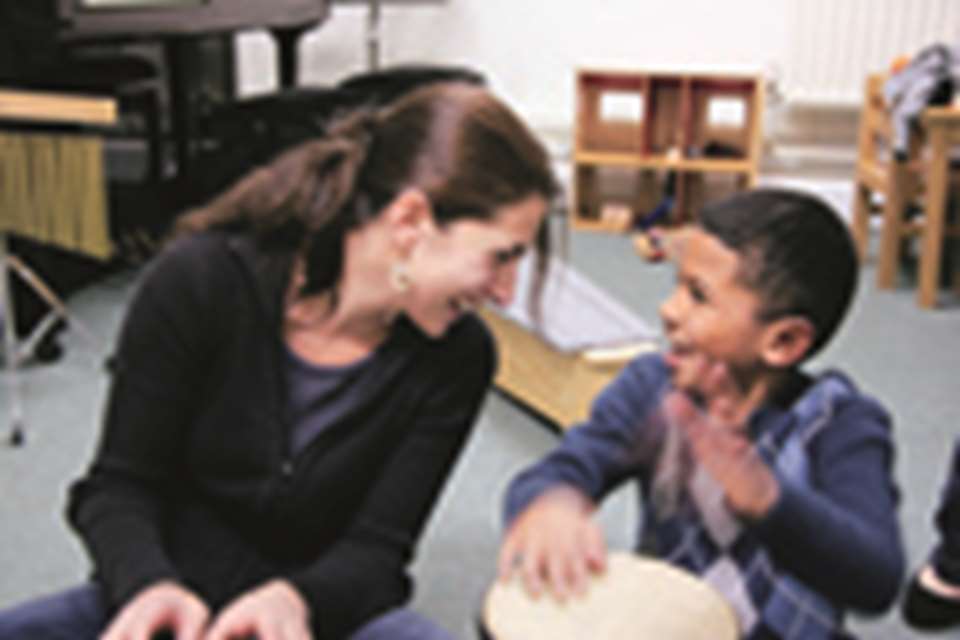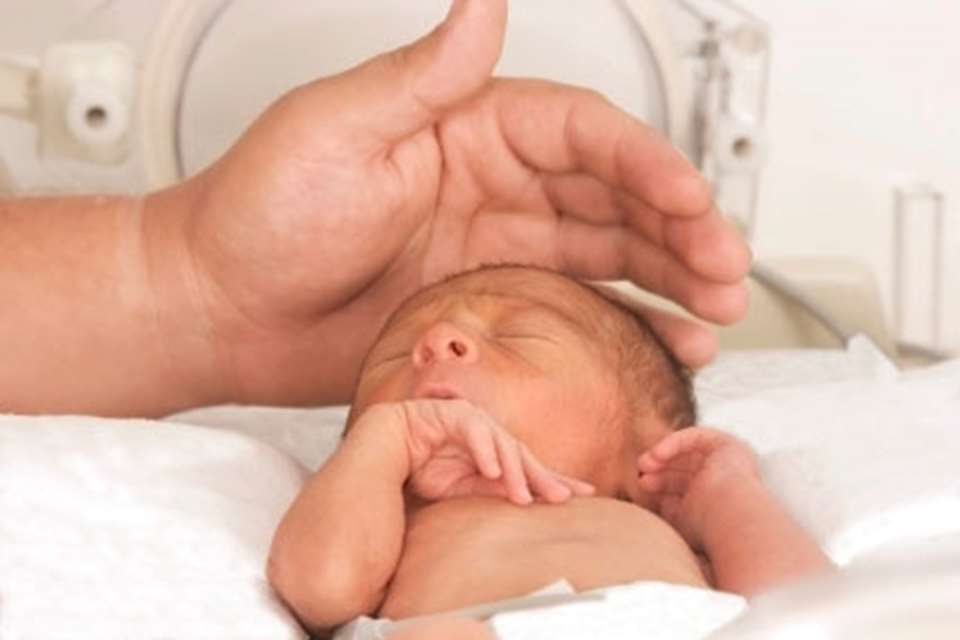Play therapy - Teaching parents how to play
Monday, August 25, 2014
Filial therapy - child-centred play led by a parent at home - is soon to get its own 'hub' at one UK university, making it easier to access specialist trainers. By Hannah Crown

According to one of its foremost proponents, Garry Landreth, filial therapy should be enshrined in legislation. 'If I were the Prime Minister we would have a law that required all parents to receive filial therapy and all nursery workers to train in it. We would change our society,' he says.
Dr Landreth, founder of the Center for Play Therapy at the University of North Texas, said this as he was teaching his 10-session filial therapy model to a room of play therapists at the University of Roehampton, where he is honorary visiting Professor.
The university is on the cusp of establishing a hub for nurseries and other practitioners to access play therapists in their area trained in Dr Landreth's model. The central premise of play therapy, of which filial therapy is a type, is allowing children to communicate to adults through play, as well as adults being able to 'read' children's play to understand their thoughts and feelings better.
According to Play Therapy UK, the therapy 'uses a variety of play and creative arts techniques to alleviate chronic, mild and moderate psychological and emotional conditions in children that are causing behavioural problems and/or are preventing children from realising their potential'.
Why filial therapy?
Filial therapy has been around since the 1960s when it was developed by Bernard and Louise Guerney. The filial approach was one of the first forms of play therapy to use parents as the 'therapeutic agent'.
Crucially, in filial therapy, parents are the key agents. Dr Landreth says the fact that parents have 'more emotional significance to the child than a therapist' makes them well placed for this, and believes that parents can 'learn the necessary therapeutic skills to be effective and that parents have the potential to continue to influence the child positively over his or her lifetime'.
'Children don't have words to describe their feelings; play is the way children talk. (We are) helping parents read their child's play and understand what the child is trying to say to them,' he says.
Dr Landreth's book, Child Parent Relationship Therapy Treatment Manual: a 10-session filial therapy model - co-written with colleague Sue Bratton - goes so far as to say that 'therapists helping parents to become therapeutic agents in their children's lives is the most efficient way to significantly improve the mental health of adult populations of the future'.
Dr Landreth argues children will have better self-control as a result of feeling in control, also developing self-respect, confidence and problem-solving skills. There is also the potential to change negative perceptions of the parent through the child experiencing increased acceptance. Parents gain a greater understanding of the child, and the development of more realistic perceptions towards both themselves and their child.
The Landreth-Bratton model
Dr Landreth and Dr Bratton developed child-parent relationship therapy (CPRT) in 2006. Under this model, play therapists hold ten two-hour sessions with groups of six to eight parents, discussing parenting issues and using video and audio recordings of parents' interactions with their children. What is most of use to nursery workers is the 30-minute 'special playtime' that lies at the core of the programme, taught by play therapists and which parents must carry out uninterrupted once a week with their child.
Dr Landreth says the parent should set no objectives for the session, and should also refrain from criticising the child in any way. As well as following the child's lead, the adult can help the child know he or she is paying close attention, and is accepting of the child's feelings, by both describing what the child is doing and reflecting the child's emotions. This could be via comments such as 'you're using lots of colours' and 'you are happy/cross about that'. Limits, such as 'the table is not for painting, the paper is for painting' can be applied, but only when they are needed.
A key area to avoid is taking responsibility away from the child. Dr Landreth says, 'I have watched so many instances of children playing where the child asks mum to come over and help with the puzzle. Mum dutifully goes and completes the puzzle. (Yet) if the child wants this finished, that is her responsibility.
'You do not build self-esteem in shovelfuls that you dump on the child - it is little comments like "You did it".'
The CPRT model comes with a recommended toy list. Mechanised toys are avoided in favour of those that are manipulated by the child, such as dolls, money, trucks, ropes and crayons.
What settings can do
'Everything that parents should do should be done by nursery workers,' Dr Landreth says. 'Nursery workers are all responsive outside the special playtime. They understand returning responsibility and reflection and not structuring all of the child's activities. The 30-minute session could be shortened to 15 minutes in a nursery.'
Play therapist Kathy Nelson, chief executive of Hertfordshire-based counselling and play therapy charity BrQthru, has trained 60 practitioners, including 20 nursery workers, using similar techniques to those outlined by Dr Landreth. Under her programme, practitioners learn what she calls 'low-level therapeutic communication skills' over a five-day course, which also includes an emphasis on attachment. They will then carry out a one-on-one 30-minute special play session per week with a particular child - for example, one who is having trouble settling in to a nursery.
She says, 'Reflective responses will start to happen even when the special playtime is not taking place. Staff gain a deep understanding of the children. The nursery workers then go back and share this information with their colleagues and if a child is playing up, or is very quiet, they look at him or her through different eyes.' She suggests that nursery practitioners will need clinical supervision from play therapists or counsellors to carry out the special playtime, but that a manager could to do the supervision with the right training.
The benefits of Ms Nelson's approach for the children are similar to those outlined by Dr Landreth. 'Equality comes into the relationship. Children are empowered to solve problems and behavioural issues themselves,' she says.
A national hub
University of Roehampton runs one of only two UK-based play therapy masters courses accredited by the British Association of Play Therapists - and is in the process of setting up a national database of play therapists using Dr Landreth's techniques. The idea is for it to be used by nurseries, schools, family centres and other bodies wanting to access specially trained therapists to offer CPRT in their area, and it will also hold details of nurseries, pre-schools and other settings that have staff who are already trained in the filial therapy model.
'As all nursery practitioners know, play is crucially important - it is about learning to understand about relationships, about safety, imagination, health,' says Lisa Gordon Clark, senior lecturer in play therapy at University of Roehampton.
'This database will mean practitioners can be sure to link up to an expert who can provide accessible information and specialist training on these techniques and help children, parents and nursery workers to communicate more effectively through play.'
The hub will be launched at www.roehampton.ac.uk/psychology. If you are a registered therapist and would like to be included, email lisa.gordon-clark@roehampton.ac.uk.









